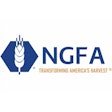
The Senate passed the U.S. Grain Standards Reauthorization Act of 2020 (S. 4054) yesterday, an act commended by the National Grain and Feed Association (NGFA), who also urged prompt House approval.
“This legislation, which would reauthorize the U.S. Grain Standards Reauthorization Act for another five years, provides certainty while improving the official inspection and weighing system through more transparency, information-sharing and better data,” says NGFA President and CEO Randy Gordon.
“This legislation is foundationally important in providing for official grain inspection and weighing services through the U.S. Department of Agriculture’s Federal Grain Inspection Service, as well as that agency’s maintenance of the U.S. grain standards that are relied upon by buyers, sellers and end-users to merchandise grains and oilseeds in domestic and international markets.”
NGFA says it appreciated the leadership and persistence of Senate Agriculture Committee Chairman Pat Roberts, R-Kan., and Ranking Member Debbie Stabenow, D-Mich., in bringing this bill to the threshold of passage despite challenging circumstances brought on by COVID-19, and urged the House to enact the legislation promptly.
The Senate Agriculture Committee approved the bill in June, and previously had conducted a hearing on reauthorizing the legislation in 2019, during which Bruce Sutherland, president of Michigan Agricultural Commodities Inc. in Lansing, Mich., and a member of USDA’s Grain Inspection Advisory Committee, testified on behalf of NGFA.
FGIS establishes official marketing standards for grains and oilseeds under the authorization of the U.S. Grain Standards Act, which was first signed into law in 1916. The existing authorization law, which was enacted in 2015 and included provisions to ensure uninterrupted export inspections, expired Sept. 30.
In a June 23 support letter to committee leaders, NGFA and the North American Export Grain Association (NAEGA) supported reauthorizing all expiring provisions of the current law for another five years, including: the ability for Congress to appropriate funding for standardization and compliance activities that have broad societal benefits, including to farmers and consumers; authorization for the USDA Grain Inspection Advisory Committee to continue operating; and the current statutory limitation on the amount of money FGIS can spend on administrative costs not associated with direct inspection and weighing activities.
The U.S. Grain Standards Reauthorization Act of 2020 also includes several improvements advocated by NGFA and NAEGA that they said will promote increased data and information-sharing to benefit the system and its users, including:
- Requiring delegated state agencies to notify users of Official inspection or weighing services at least 72 hours in advance of any intent to discontinue such services;
- Ensuring FGIS user fees are directed solely to inspection and weighing services;
- Reporting requests for waivers, exceptions and intrinsic quality and food safety factors received and granted by FGIS; and
- Directing FGIS to complete a comprehensive review of the current boundaries for the officially designated grain inspection agencies in the domestic marketplace.
NGFA and NAEGA also highlighted their concerns about ongoing non-tariff trade barriers that have restricted exports of U.S. grains and oilseeds, noting that the reauthorization bill retains the provision that prohibits the “use of false or misleading grade designations” on official grade certificates for U.S. grain exports.
















